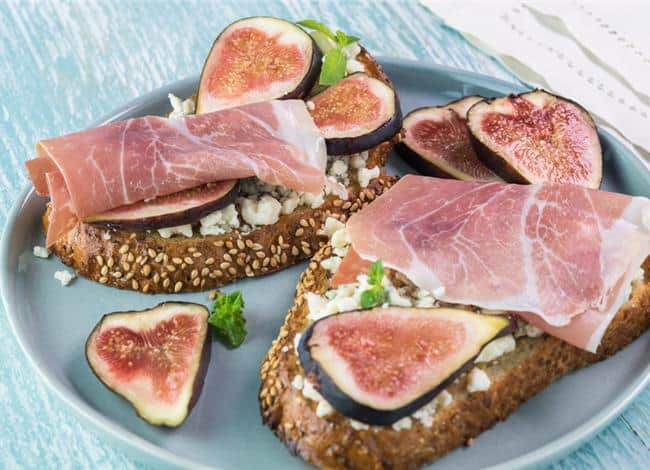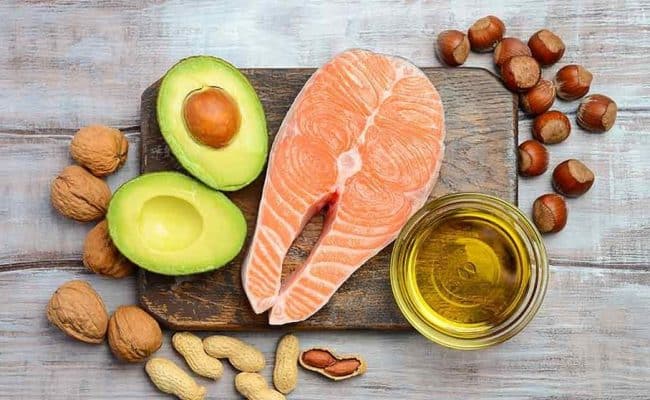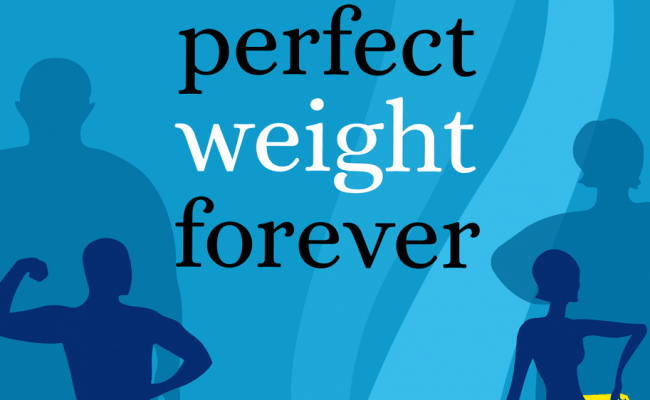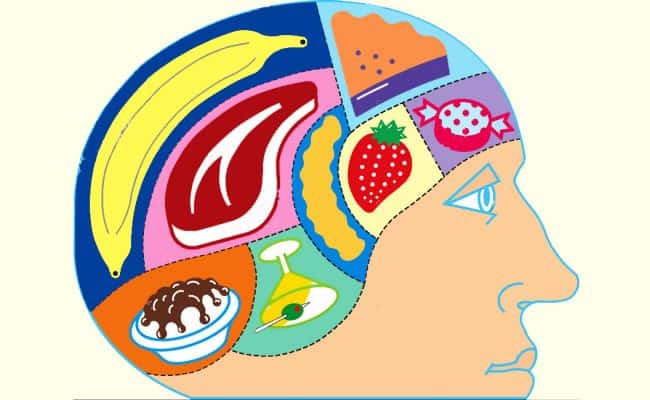
Food combining for weight loss suggests you should eat foods in certain combinations to help lose weight. Eating the wrong type of foods could alter digestion and affect weight loss. So, if you want to follow the idea of food combining, you shouldn’t mix proteins with carbohydrates for example.
This idea (1) for food combining suggests the stomach produces certain enzymes to break down food that are either acidic or alkaline.
When you eat foods together that need alkaline and acidic enzymes, it makes it harder to digest the food.
Proponents of food combining also suggest the differences in digestion time between protein, fat and carbohydrates can cause other digestion issues.
For example, primarily carbohydrate foods like fruit take less time to digest than protein foods like meat.
When they are eaten together, the fruit could sit in the stomach “waiting” for the protein to be digested.
While the principles behind food combining may sound scientific, there actually isn’t any scientific evidence behind these principles.
In fact, there is more evidence to suggest eating a mixed diet can be beneficial for a number of reasons.
Following food combing doesn’t give any weight loss or other health advantage.
What foods are you supposed to combine or avoid?
When following food combining, you should eat fruit 30 minutes before the meal and avoid eating fruit after a meal.
Starches, proteins, fruits, nuts and seeds should not be mixed when eating. Vegetables can be paired with any of these foods.
There are many rules that need to be followed for food combining, and it can be confusing.
For example, raw foods and cooked foods shouldn’t be eaten together, and milk shouldn’t be consumed with any other food (2).
You should only consume one type of protein per meal. This is one reason why you should eat nuts separately from other protein sources.
Other protein foods like legumes should not be mixed with meat in the same meal.
Foods like sweets, alcohol and processed, packaged foods should be avoided because they can alter digestion for other foods even if they are eaten in the “right” combinations.
What does the research say?
There isn’t any research support to back up claims eating certain food combinations can be harmful to digestive process or weight loss.
Dr. Mike Roussell in a Shape article (3) suggests one reason food combining isn’t necessary is because digestion is a process and is not static.
Food does not sit and rot in the stomach, as proposed with food combining, while “waiting” for other food to be digested.
The digestive tract is very complex and efficient; it can handle digesting many types of food at one time.
A 2000 study (4) was done to evaluate a food combining diet compared to a traditional diet on weight loss.
Obese research participants were put on a low calorie diet with equal amounts of calories, protein, carbohydrates and fat. The only difference was when they ate certain foods.
At the end of 6 weeks, researchers found there was no significant difference in weight loss between groups. Researchers concluded food combining did not offer any benefit for weight loss.
There is also research to suggest eating different foods in combinations can actually increase absorption of nutrients from food.
For example, a 2015 study (5) found cooked egg added to a raw vegetable salad increased absorption of antioxidant carotenoids from raw vegetables.
This goes against the food combining principle of mixing raw and cooked foods, but actually combining cooked and raw foods in this instance helped absorption.
Another factor to consider is most foods are naturally a combination of different macronutrients.
For example, quinoa has properties like a grain (starch) but is also high in protein. Avocado is technically a fruit, but it is higher in fat.
You can’t dissect apart the differences in whole foods for different times for digestion. This suggests the body is more than capable of digesting different macronutrients at the same time without adverse side effects.
Can it help for weight loss?
Can people following a food combining diet lose weight? Yes.
The reason for weight loss though is not because of the food combining. The reason for weight loss can be the same for any other diet: following food combining diet limits sources of empty calories and could promotes a higher intake of fruits and vegetables.
Long term adherence to a food combining diet can be challenging.
There are so many rules of eating with food combining, and eating outside the home can be very difficult.
There is also concern that following food combining diet may increase risk for nutritional deficiencies if certain food groups are avoided.
Conclusion: Food combinations to consider for weight loss
Combining foods for weight loss may actually be the way to go instead of avoiding certain food combinations.
For example, pairing protein and fiber sources together can actually be beneficial for weight loss since both nutrients can provide satiety to a meal.
These nutrients can also slow the release of glucose from the digestive tract into the blood stream.
Eating a variety of foods is recommended to ensure your food is giving you a variety of important nutrients for health.
Combining foods together can increase absorption of nutrients like antioxidants. Pairing fruits and vegetables with higher fat foods, like nuts, could help increase the absorption of fat soluble nutrients like vitamins A,D,E and K.
Is following food combing guidelines ever advised?
Certain digestive issues could warrant an altered diet for avoiding certain foods or food combinations but is rare.
If your medical team has suggested avoiding certain foods or food combinations, follow that advice.











